Remplex 2025 Summit - Opening Sessions
Tuesday, November 4
RemPlex Global Summit Opening Remarks
Speakers: Tom Brouns, Horst Monken-Fernandes, Angela Becker-Dippmann, Richard Raymond
About the Speakers
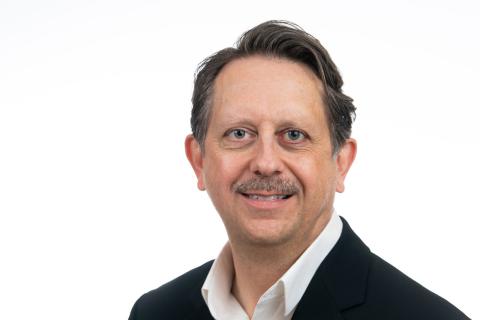
Tom Brouns, Interim Director, Program Development Office, Energy and Environment Directorate; Director, RemPlex
Tom Brouns manages Pacific Northwest National Laboratory's Environmental Management Sector. He has more than 30 years of experience developing and managing research, development, and demonstration projects and programs involving government, industry, research, and university partners. Mr. Brouns is a chemical engineer with extensive technical and management experience in the disposition and remediation of chemical and nuclear waste, including processing, disposal, and subsurface cleanup.
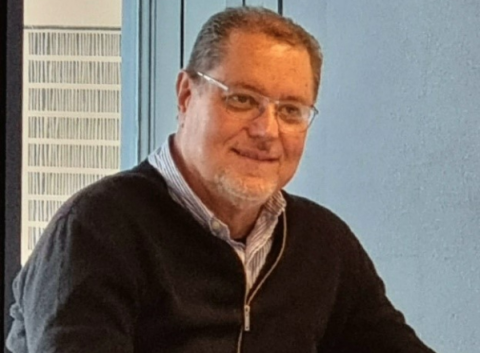
Horst Monken-Fernandes, Environmental Scientist, International Atomic Energy Agency
Dr. Horst Monken-Fernandes is an Environmental Remediation Specialist working for the Decommissioning and Environmental Remediation Section of the International Atomic Energy Agency. In this position, Dr. Monken-Fernandes oversees technical projects addressing environmental remediation issues related to nuclear fuel cycle activities, nuclear accidents, decommissioning of nuclear facilities, and management of sites contaminated by naturally occurring radioactive materials (NORM). He is the Scientific Secretary of ENVIRONET, the Network of Environmental Remediation and NORM Management. Collectively, these activities support information exchange and capacity building among IAEA Member States to promote successful remediation projects worldwide. Before joining the IAEA, Dr. Monken-Fernandes was a researcher at the Institute of Radiation Protection and Dosimetry (IRD) of the Brazilian Nuclear Energy Commission (CNEN). He is a Chemical Engineer by training and holds a Ph.D. in Environmental Geochemistry.
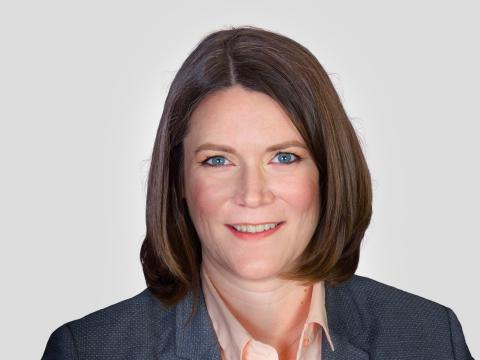
Angela Becker-Dippmann, Interim Associate Laboratory Director, Energy and Environment
In her cross-cutting role as Director of PNNL's Energy and Environment Directorate (EED) Program Development Office, Angela Becker-Dippmann evaluates emerging national, regional, and state energy and environmental priorities, policies, and programs to make sure EED’s strategy is focused on the most impactful outcomes. She rejoined PNNL in April 2019 after previously serving as an EED senior policy analyst from 2011–2015. In the meantime, she served as Staff Director at the U.S. Senate Committee on Energy and Natural Resources, with jurisdiction over the Department of Energy’s Office of Science, applied research and development programs, the Bonneville Power Administration, the Federal Energy Regulatory Commission, and the Department of the Interior. With the U.S. Senate Committee on Energy and Natural Resources, she managed 20 policy professionals, legislative counsels, federal agency detailees, and science fellows to execute the energy, infrastructure, environmental, and public lands agenda of Ranking Member Maria Cantwell.
Presentation: A Short History of Cleanup at the Hanford Site
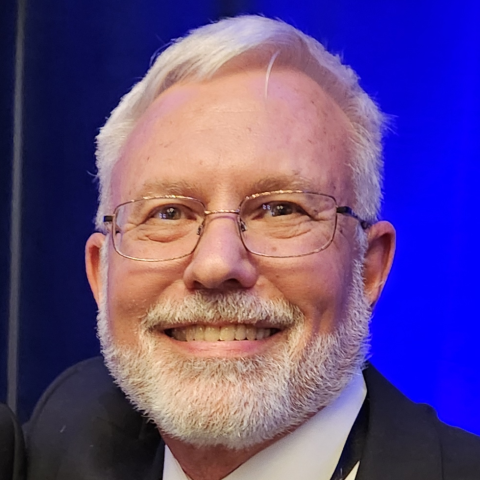
Richard Raymond, Senior Consultant
Rick Raymond started his nuclear career working for the Atomic Energy Commission on the personal staff of the Division of Naval Reactors under Admiral H.G. Rickover. He was the lead headquarters engineer for three of the older classes of nuclear submarines, and the lead engineer for the two US submarines that have been on eternal patrol. He then came to Hanford in 1979 where he has held many positions in his over 40-year history. These include Reactor Plant Manager, Reactor Engineering Manager, and VP of Projects and Technology Development, and Chief Engineer for Tank Farms. Specific projects include Single Shell Tank retrieval, tank waste characterization, design, construction, and operation of three full-scale non-radioactive prototype test facilities. The most significant safety project led by Rick was the emergency project to resolve all safety issues associated with Hanford tank SY-101; the tank that periodically “burped” hydrogen gas. This project was recognized as the number two finalist in the International Project of the Year Award by the Project Management Institute and resulted in a book being written about this project: “Hanford’s Battle with Nuclear Waste Tank SY-101: Bubbles, Toils, and Troubles”, author Charles Stewart. Rick recently managed the K-Reactor fuel storage basin cleanup, including degraded fuel handling and debris removal and eventual closure of K-East Basin.
Rick has received commendations from the National Nuclear Security Administration for assistance to Fukushima recovery efforts and two other PMI project of the year awards. Rick has been recognized as Manager of the year for the Eastern Washington Project Management Institute, and Engineer of the Year for the Eastern Washington Society of Professional Engineers. Rick serves as the Chairman of the Walla Walla University Engineering and the Florida International University Research Center advisory boards. Rick is the past vice-president of operations for the Columbia Basin Boy Scouts of America and is docent for B-Reactor tours and for general Hanford tours for DOE.
Wednesday, November 5, 2025
Updates in Site End State and Stewardship Strategy at the UK Nuclear Decommissioning Authority (NDA)
Speaker: Frank Wigley
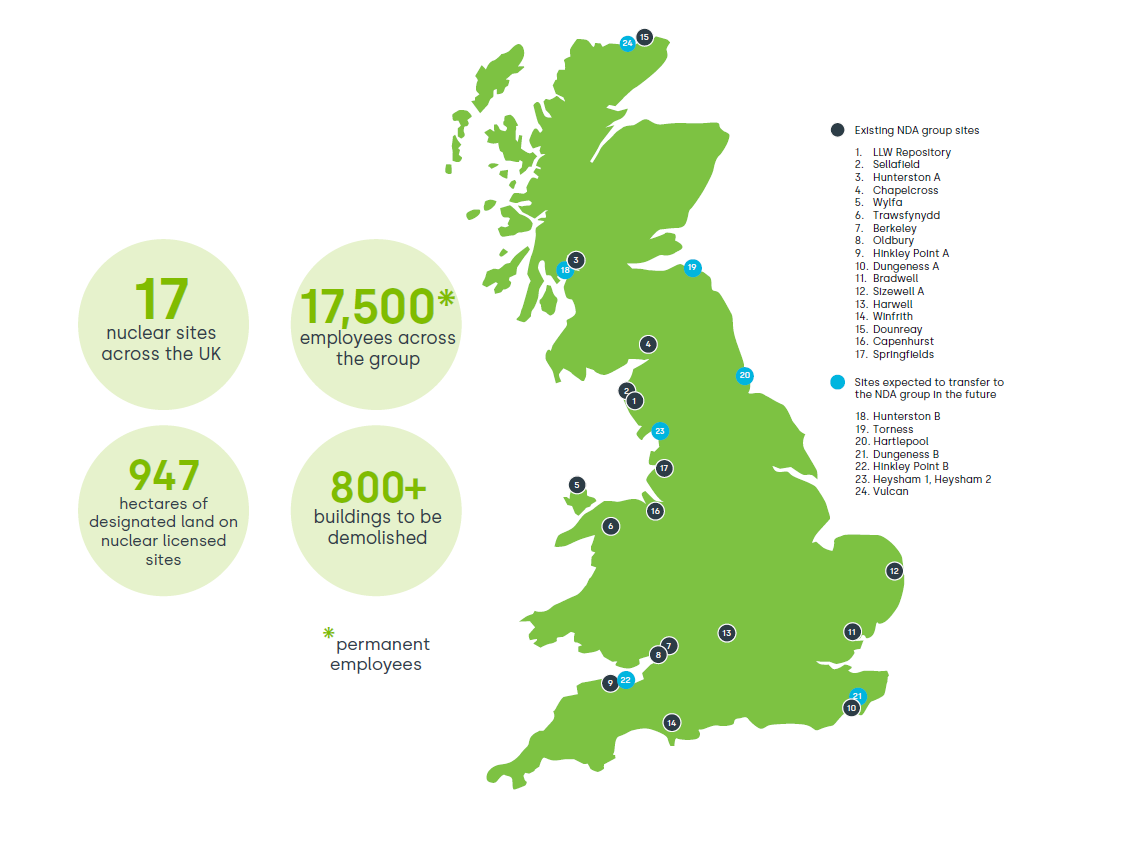
The Nuclear Decommissioning Authority (NDA) is responsible for the decommissioning and cleanup of 17 legacy nuclear sites in the United Kingdom (UK). Its mission is to deliver safe, secure, sustainable and publicly acceptable solutions to decommissioning of these legacy sites, with care for the environment and adjacent communities. In July 2025, the NDA released its draft updated strategy for decommissioning of the UK’s legacy nuclear sites; this strategy will be revised and formally adopted following a public review period that ended in September.
In this session, Mr. Wigley will provide an update on NDA efforts related to strategic reframing of site end states and planning for safe stewardship of these sites. He will discuss the challenges related to balancing risk, cost, and stakeholder expectations; regulatory misalignment; and knowledge management over decades of activity. And he will present opportunities related to the United Nations Sustainable Development Goals, sustainability and circular economy principles, lifecycle management in post-closure stewardship, and international benchmarking.
This session builds on information shared in the 2023 Global Summit case study on Delivering Nuclear Site Cleanup in the United Kingdom, which shared information about the NDA mission through a series of case studies focused on the Dounreay (Scotland), Trawsfynydd (Wales), and Winfrith (England) sites.
About the Speaker
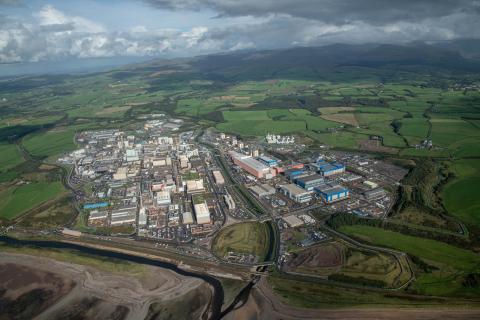
Frank Wigley, Remediation Strategy, NDA
Dr. Frank Wigley is a recognized leader in nuclear decommissioning and environmental remediation, with over 25 years of experience in managing complex site cleanup and restoration across the UK’s civil nuclear estate. As Remediation Strategy Manager at the NDA, he is responsible for shaping national strategy around site end states—defining the future use and condition of nuclear sites post-decommissioning. Frank holds a PhD in Geochemistry from the National Oceanography Centre, Southampton, and has applied his scientific and strategic expertise to projects at Dounreay, Trawsfynydd, Winfrith and other legacy sites. His work integrates technical innovation, regulatory reform, and stakeholder engagement to enable sustainable and cost-effective land reuse. He contributes to international working groups at the IAEA and OECD NEA, and regularly advises on policy development through forums such as the Scottish Parliament’s Cross Party Group on Civil Nuclear Industry. Frank’s insights help bridge the gap between technical delivery and long-term societal value in land quality and waste management.
Thursday, November 6, 2025
Panel Discussion: The Role of Research and Development (R&D) in Cleanup
Panelists: Rod Rimando, Horst Monken-Fernandes, Frank Wigley
Moderator: Andrew Cundy
The 2025 Global Summit program covers a broad range of both basic and applied sciences required to address some of the most complex and pervasive challenges faced at remediation sites worldwide. In this session, panelists will dive more deeply into the opportunities and challenges related to moving breakthroughs in basic sciences research to full-scale implementation and/or commercialization. The panelists will discuss current and emerging R&D priorities, identifying key technology and data gaps and opportunities to leverage cutting edge science and technology achievements to resolve remediation challenges. They will also examine the roles of researchers and industry in moving from R&D to deployment and the opportunities for increasing collaboration.
About the Panelists
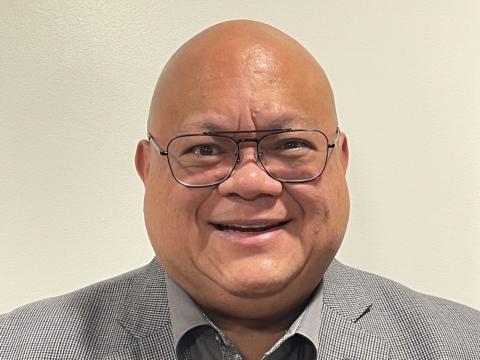
Rod Rimando, Director of Technology Operations Office, DOE Office of Environmental Management
Rodrigo (Rod) V. Rimando, Jr. is Acting Director for Office of Technology Development within the Office of Environmental Management (EM). Rod has over 36 years of nuclear experience that started in 1987 as a nuclear engineer at the Navy Department’s Charleston Naval Shipyard in South Carolina. He joined DOE in 1995 at the Savannah River Site bringing with him his newly expertise in nuclear facility decommissioning and environmental cleanup having directed a large portfolio of cleanup projects in support of base closure. From 1995 to 2012, Rod directed numerous high-profile legacy cleanup projects many of which incorporated advanced tooling and innovative solutions. Within that 17-year span, Rod served as the Site EM Federal Project Director at Brookhaven National Lab in New York from 2001 to 2004 and then directed a three-year, $1.7 billion portfolio of Recovery Act projects at SRS from 2009 to 2012. He transferred to EM headquarters in 2012 at which time he served as EM’s technical liaison to former Secretary Stephen Chu on Hanford’s Waste Treatment and Immobilization Plant. In 2016, when EM was reorganized, Rod served as the director of the newly formed Office of Technology Development for its first three years. This past April, Rod returned to technology development and is now acting in his old job. Rod has a Bachelor of Science degree in Physics/Nuclear Physics from The Citadel, The Military College of South Carolina.

Horst Monken-Fernandes, Environmental Scientist, International Atomic Energy Agency
Dr. Horst Monken-Fernandes is an Environmental Remediation Specialist working for the Decommissioning and Environmental Remediation Section of the International Atomic Energy Agency. In this position, Dr. Monken-Fernandes oversees technical projects addressing environmental remediation issues related to nuclear fuel cycle activities, nuclear accidents, decommissioning of nuclear facilities, and management of sites contaminated by naturally occurring radioactive materials (NORM). He is the Scientific Secretary of ENVIRONET, the Network of Environmental Remediation and NORM Management. Collectively, these activities support information exchange and capacity building among IAEA Member States to promote successful remediation projects worldwide. Before joining the IAEA, Dr. Monken-Fernandes was a researcher at the Institute of Radiation Protection and Dosimetry (IRD) of the Brazilian Nuclear Energy Commission (CNEN). He is a Chemical Engineer by training and holds a Ph.D. in Environmental Geochemistry.
Frank Wigley, Remediation Strategy, NDA
Dr. Frank Wigley is a recognized leader in nuclear decommissioning and environmental remediation, with over 25 years of experience in managing complex site cleanup and restoration across the UK’s civil nuclear estate. As Remediation Strategy Manager at the NDA, he is responsible for shaping national strategy around site end states—defining the future use and condition of nuclear sites post-decommissioning. Frank holds a PhD in Geochemistry from the National Oceanography Centre, Southampton, and has applied his scientific and strategic expertise to projects at Dounreay, Trawsfynydd, Winfrith and other legacy sites. His work integrates technical innovation, regulatory reform, and stakeholder engagement to enable sustainable and cost-effective land reuse. He contributes to international working groups at the IAEA and OECD NEA, and regularly advises on policy development through forums such as the Scottish Parliament’s Cross Party Group on Civil Nuclear Industry. Frank’s insights help bridge the gap between technical delivery and long-term societal value in land quality and waste management.
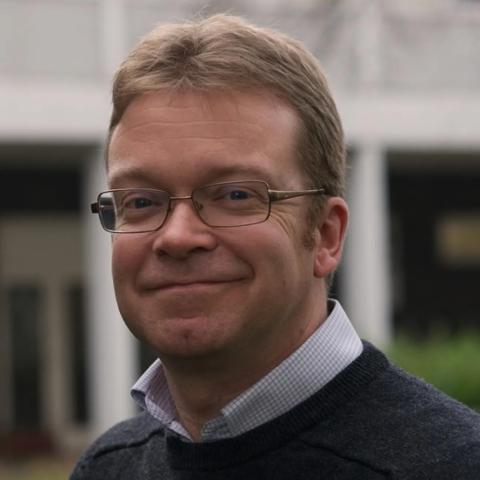
Andrew Cundy, Professor and Chair in Environmental Radiochemistry, School of Ocean and Earth Science, University of Southampton
Andy is Professor of Environmental Radiochemistry, and Research Director of the University consultancy and research unit GAU-Radioanalytical, in the School of Ocean and Earth Science at the University of Southampton. Having originally studied oceanography, he graduated with a PhD in Geology from Southampton in 1994 and since then has worked at various UK Universities before rejoining Southampton in 2016. He has over 30 years research and teaching experience in the environmental cycling and behaviour of aquatic and terrestrial pollutants (radioactive, metal, organic, and plastic contaminants); environmental radioactivity and radiochemistry; environmental geology; sediment geochemistry; radiometric dating; and contaminated land, wastes and water management (including the development of more sustainable contaminated land clean-up methods).
Andy is UK Discipline Lead for Radiochemistry in the Nuclear Waste Services Research Support Office (NWS-RSO) and is a member of the Geohazards committee of the International Geoscience Programme (IGCP) (International Union of Geological Sciences and UNESCO), which focuses on international geoscience capacity building and sustainable development.